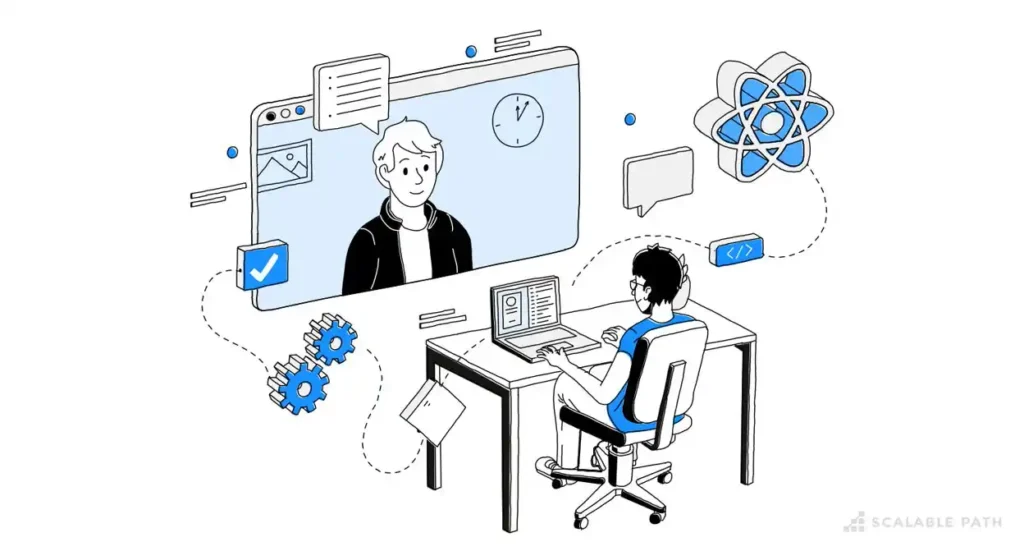Mastering Technical Interviews: A Comprehensive Guide
Technical interviews are a critical component of the hiring process for roles in software engineering, IT, data science, and other technical domains. These interviews are designed to assess your technical knowledge, problem-solving abilities, and how well you can apply your skills to real-world scenarios. Preparing effectively can make the difference between landing your dream job and missing out.
This detailed guide explores the key aspects of technical interviews, preparation strategies, common formats, and actionable tips for success. It is optimized for search engines to help you find the most relevant insights.
Mastering HR Interviews: Your Complete Guide to Success
What is a Technical Interview?
A technical interview is an evaluation of your ability to solve technical problems and demonstrate proficiency in the tools, programming languages, and concepts relevant to the role. It typically includes coding challenges, problem-solving questions, system design exercises, and theoretical discussions.

Types of Technical Interviews
Technical interviews come in various formats, each tailored to assess specific skills. Here are the most common types:
1. Coding Interviews
- Focus: Programming and algorithmic problem-solving.
- Common Languages: Python, Java, C++, JavaScript, etc.
- Tools: Platforms like LeetCode, HackerRank, or CodeSignal.
- Example Question: Write a function to find the longest palindrome in a given string.
2. System Design Interviews
- Focus: High-level architecture and scalability.
- Common Topics: Distributed systems, API design, databases, and caching.
- Example Task: Design a URL shortening service like Bit.ly.
3. Whiteboard Interviews
- Focus: Explaining solutions visually on a whiteboard.
- Often includes: Algorithms, system diagrams, or flowcharts.
- Requires: Clear communication and logical structuring of solutions.
4. Take-Home Assignments
- Focus: Real-world project simulations.
- Example: Build a web application using specific frameworks or datasets.
5. Behavioral Technical Interviews
- Focus: Collaboration and problem-solving in a team context.
- Example Question: Describe a challenging technical problem you solved and your approach.
Care Support Worker in Romford, Essex
Key Skills Tested in Technical Interviews
Technical interviews evaluate a wide range of skills:
1. Programming Proficiency
- Proficiency in programming languages like Python, Java, or C++.
- Ability to write clean, efficient, and bug-free code.
2. Data Structures and Algorithms
- Mastery of arrays, linked lists, trees, graphs, hash maps, stacks, and queues.
- Algorithmic topics include sorting, searching, dynamic programming, and recursion.
3. System Design and Architecture
- Understanding scalable and fault-tolerant system architecture.
- Knowledge of microservices, cloud computing, and database design.
4. Problem-Solving and Analytical Thinking
- Breaking down complex problems into smaller, manageable tasks.
- Applying logical reasoning and optimization techniques.
5. Communication Skills
- Explaining your thought process clearly.
- Discussing trade-offs and justifying design decisions.

Commonly Asked Technical Interview Questions
Below are categories of frequently asked questions and examples:
Data Structures Questions
- Arrays: Find the subarray with the maximum sum (Kadane’s Algorithm).
- Linked Lists: Detect and remove a cycle in a linked list.
- Trees: Implement a function to traverse a binary tree in level order.
Algorithmic Questions
- Sort an array of integers using quicksort.
- Find the shortest path in a graph using Dijkstra’s algorithm.
System Design Questions
- Design a social media feed algorithm.
- Architect a video streaming service like YouTube.
Database Questions
- Write SQL queries to retrieve top-performing employees.
- Discuss normalization and denormalization in databases.
Coding Challenges
- Reverse a linked list.
- Determine whether a string contains all unique characters.
Banquet Server at Rosen Hotels & Resorts
How to Prepare for a Technical Interview
1. Understand the Role and Requirements
- Study the job description carefully to identify required skills.
- Research the company’s tech stack and recent projects.
2. Strengthen Your Fundamentals
- Revisit core computer science concepts such as data structures, algorithms, and OOP principles.
- Use resources like textbooks (“Cracking the Coding Interview”) or online courses (Coursera, Udemy).
3. Practice Coding
- Regularly solve problems on platforms like LeetCode, HackerRank, or Codeforces.
- Start with easy problems, progress to medium, and eventually tackle hard-level challenges.
4. Work on Real-World Projects
- Build projects to showcase your skills and understanding of full-stack development.
- Examples: Portfolio websites, chat applications, or data visualizations.
5. Simulate the Interview Environment
- Conduct mock interviews with peers or mentors.
- Practice whiteboard coding or virtual collaboration tools like Miro.
6. Learn System Design
- Study distributed systems concepts and design trade-offs.
- Recommended resources: “System Design Interview” by Alex Xu.
7. Prepare Behavioral Answers
- Use the STAR method (Situation, Task, Action, Result) to structure your answers.
- Example: “Tell me about a time you resolved a technical conflict in a team.”

Dos and Don’ts in Technical Interviews
Dos:
- Clarify Questions: Always ask for clarification if you’re unsure about the problem statement.
- Communicate Clearly: Verbally walk the interviewer through your thought process.
- Optimize Solutions: Discuss potential improvements and trade-offs.
- Test Your Code: Debug and test your solution to handle edge cases.
- Stay Calm: Maintain composure, even if you’re stuck.
Don’ts:
- Don’t Rush: Take your time to understand the problem before diving into coding.
- Don’t Be Defensive: Accept constructive feedback gracefully.
- Don’t Ignore Edge Cases: Consider inputs like empty arrays, negative numbers, or large datasets.
1st Shift Packer – Competitive Pay & Growth at OSI USA Danvers
Post-Interview Best Practices
1. Reflect on Your Performance
- Identify areas where you excelled and those needing improvement.
- Practice questions you struggled with.
2. Send a Thank-You Email
- Express gratitude for the opportunity and reiterate your interest in the role.
3. Continue Learning
- Even if you don’t get the job, use the experience as a learning opportunity.
Top Resources for Technical Interview Preparation
- Books:
- “Cracking the Coding Interview” by Gayle Laakmann McDowell.
- “Elements of Programming Interviews” by Adnan Aziz.
- Online Platforms:
- LeetCode, HackerRank, Codeforces, GeeksforGeeks.
- YouTube Channels:
- TechLead, Clément Mihailescu, and CS Dojo.
- Mock Interview Services:
- Preamp, Interviewing.io, and Exponent.
Conclusion
Technical interviews can be challenging, but thorough preparation and a systematic approach can significantly improve your chances of success. Focus on mastering the fundamentals, practicing problem-solving, and developing strong communication skills. Remember, every interview is a learning opportunity, so even if you face setbacks, use them to grow and refine your skills.
By following the strategies outlined in this guide, you’ll be well-equipped to tackle any technical interview with confidence. Good luck!




